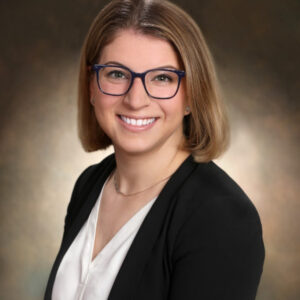Before we begin, I want to take a moment to name the grief and shock that we are all carrying in light of the horrific murder of Yaron Lischinsky and Sarah Milgrim at an AJC event just yesterday. They were targeted as Jews, as visible members of our community, and their deaths remind us—painfully—that the promise of safety in America, a promise that drew so many of our ancestors to these shores, is still fragile. We came to this country fleeing persecution, seeking freedom, security, and peace. And while that sense of security is shaken right now, we cannot let go of the vision that brought us here. We must continue to work for an America that fulfills its highest ideals—where people of all faiths and backgrounds can live without fear, and where no one is targeted for who they are. As Jews, our memory of displacement is deep and ancient. It is part of who we are. And in moments like this, it calls us not to despair—but to deepen our commitment to building a world where all who seek refuge can find it.
This is not a new calling for us. It is written into the very core of our story — the story of Yetziat Mitzrayim, the Exodus from Egypt. This is not just a tale of ancient history; it is the backbone of our spiritual identity. It is how we learned who we are, and whom we are called to care for.
The Exodus is referenced throughout our liturgy at least a dozen times — embedded in our daily prayers, in the rhythm of Shabbat, in our holidays and rituals. We recite it twice daily in the Shema and its blessings, when we sanctify the day of Shabbat through Kiddush on Friday nights, and in the words we place in mezuzot on our doors. It is as if our tradition wants to be sure that no matter what else we forget — we never forget that we were once refugees.
But Yetziat Mitzrayim is more than a story of liberation. It is also a story of trauma. Our ancestors may have walked into freedom, but they carried with them the weight of suffering, the uncertainty of the wilderness, and the grief of all they left behind. The journey was long and painful. The transformation into a free people was not instantaneous; it was generational.
And we still carry that memory. That experience of being uprooted, of searching for home, of not yet arriving — it’s in our bones. That is why our tradition doesn’t just tell us to remember the Exodus — it builds our entire ethical vision around it.
Over and over again, the Torah commands: “You shall not wrong a stranger or oppress them, for you were strangers in the land of Egypt.” Not once. Not twice. But thirty-six times. More than any other commandment.
And the commandment is not to show pity. It’s to act from shared experience. To remember what it feels like to be vulnerable, to be new, to be afraid.
This commandment has never felt more urgent than it does now.
Today, countless people around the world are on their own Yetziat Mitzrayim journeys. They are fleeing war, persecution, instability, and oppression. They are seeking safety, dignity, and a future for their children. And like our ancestors, they carry with them not just what they need to survive — but the heartbreak of everything they’ve had to leave behind.
And yet — in this moment — we are painfully aware that the road to refuge is narrowing. In our own country, the welcome that once defined our national ethos is fading. Refugees who had been approved to come have seen their paths suddenly blocked. Families hoping to reunite are caught in legal limbo. Unaccompanied minors and parolees face a tangled web of policies that offer little clarity and even less stability.
Despite these challenges, our sacred calling is clear: we must translate the story of Exodus into action: by welcoming, by accompanying, by supporting, by advocating.
And even when federal policy becomes restrictive, our moral vision must remain expansive. Because our responsibility does not begin or end at a border. Our calling is not only to shelter bodies, but to hold stories. Not only to offer resources, but to restore dignity.
May this virtual gathering be a space where we hold both truth and hope. Where we face the hard realities of this moment but also lift up the courage of those still walking their own journeys through the wilderness. Where we learn not just what’s happening — but how we can help.
Because in the end, Yetziat Mitzrayim is not a story that ends. It is a story we are still living. And our tradition tells us: in every generation, we must see ourselves as if we, too, went out from Egypt.
May we carry that awareness with us today. May we bring it into every conversation, every action, every step forward.
And may we be the companions, the builders, the rememberers — so that no one seeking refuge has to walk alone.




